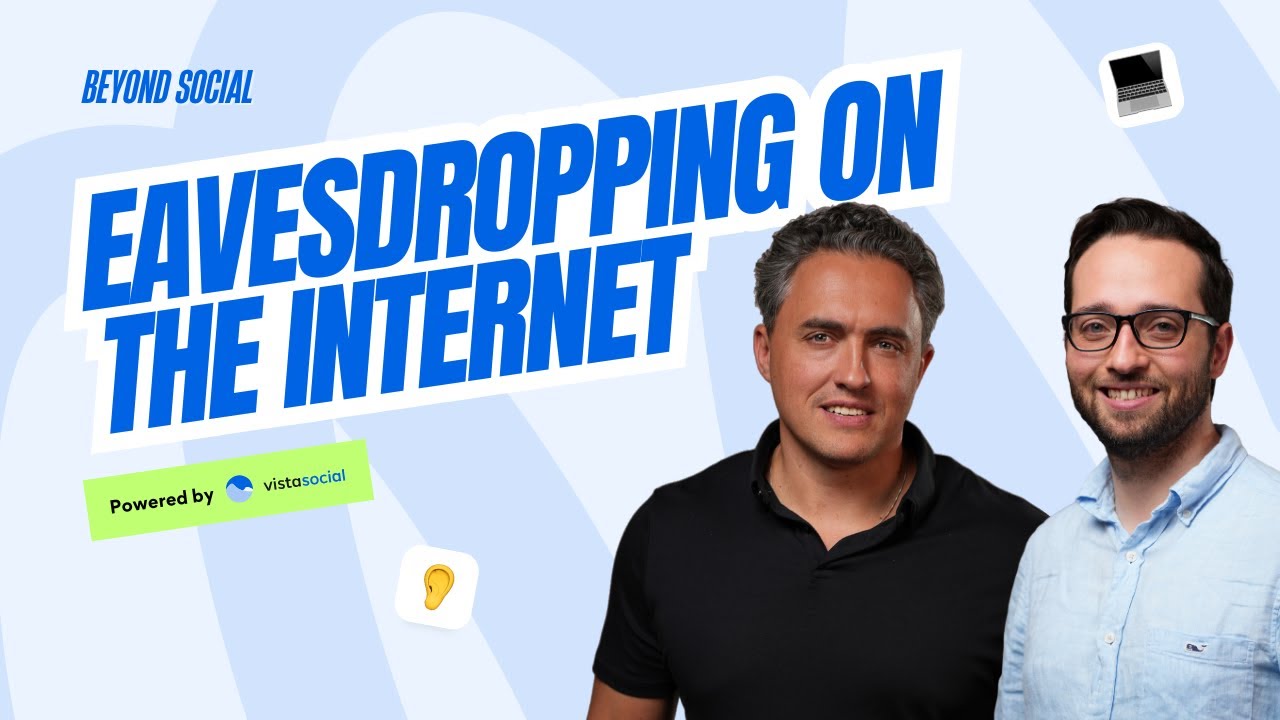New
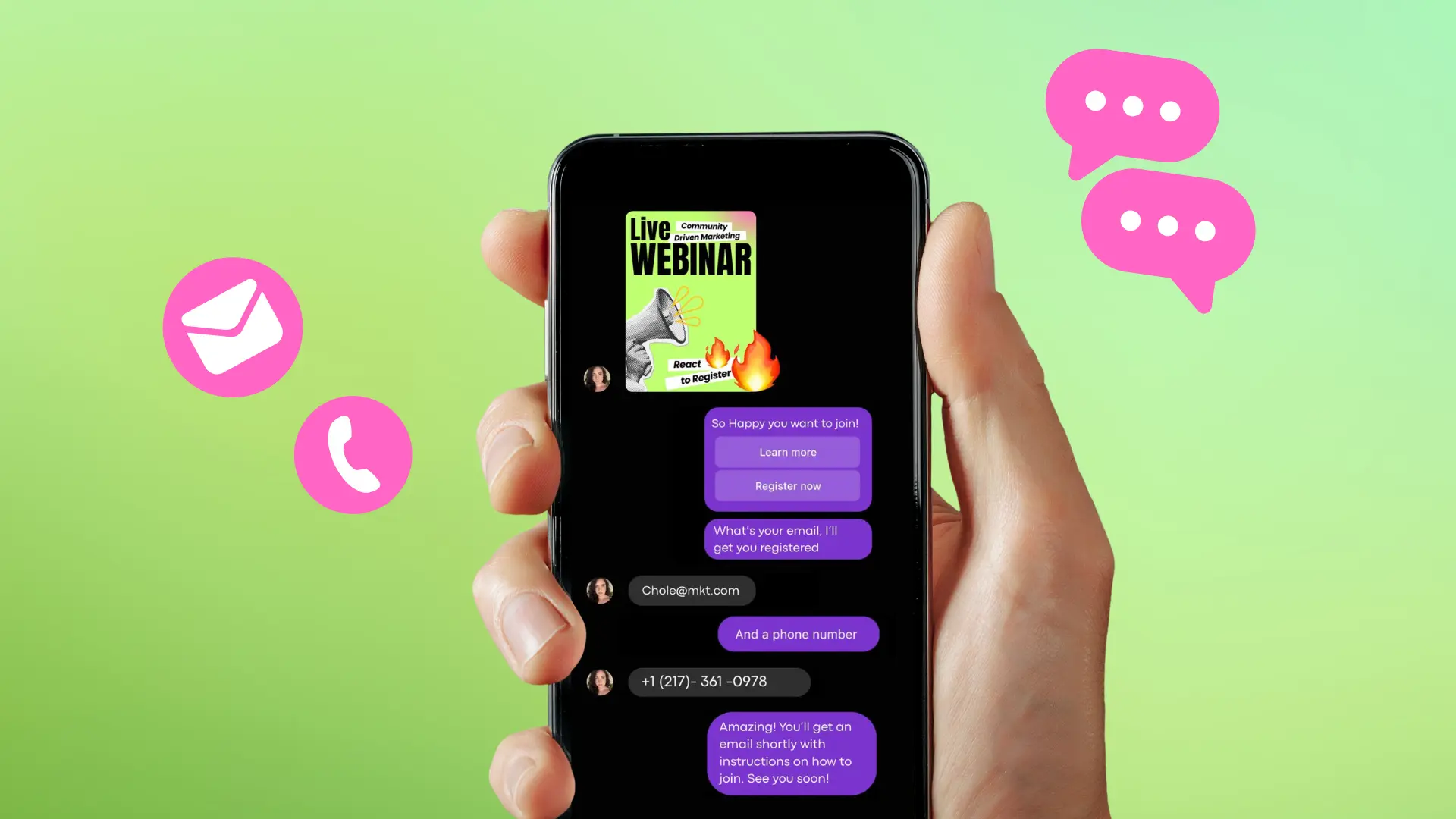
Turn Your DMs Into Lead Gen!
Learn how to collect lead data from your DMs such as email addresses, phone numbers, and more right from your social inbox. If you are not yet automating your DMs your competitors are outpacing you.
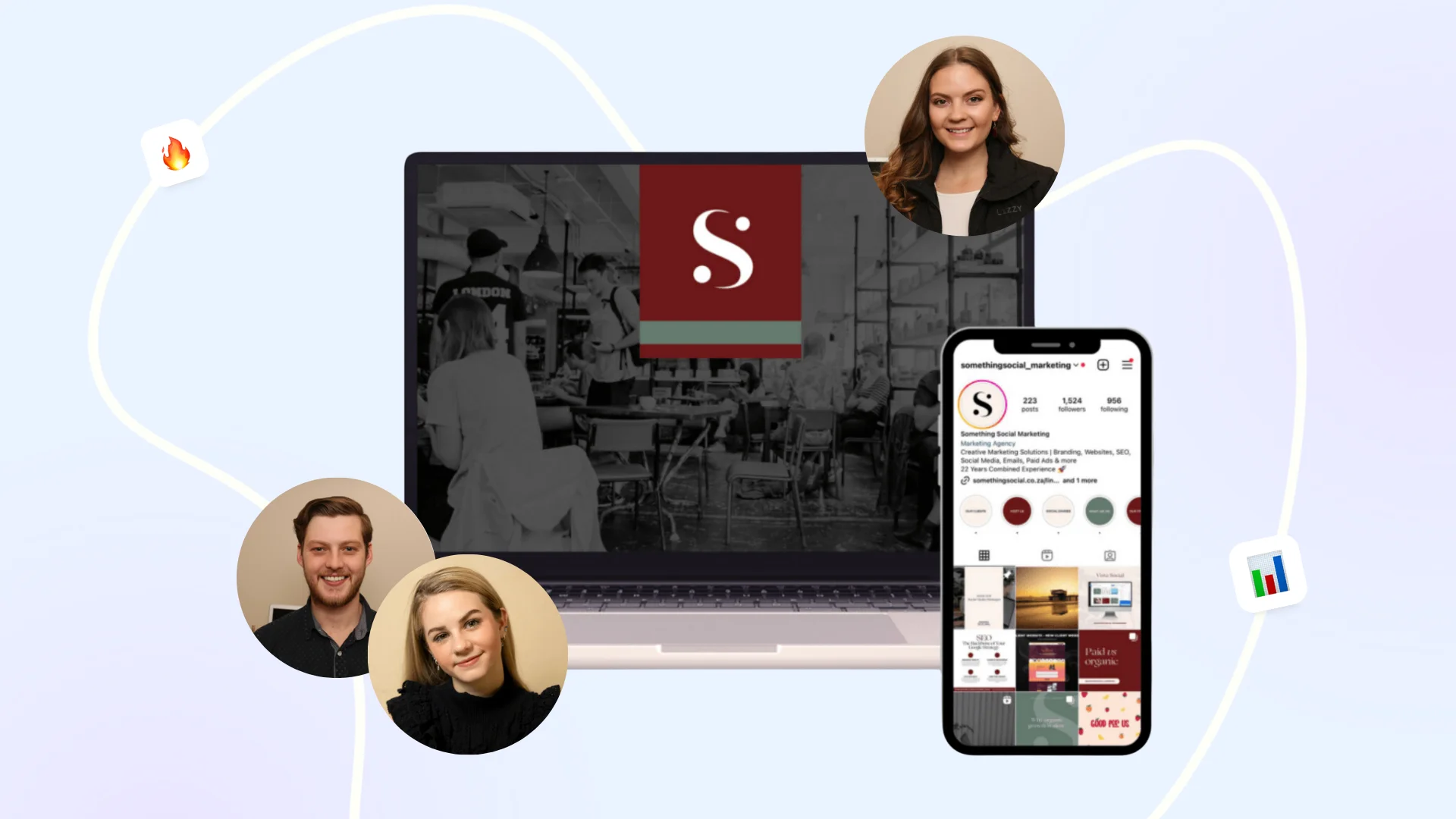
How Something Social Saved 75% of Their Time and Increased Revenue by 15%
See how a fast-growing agency improved operations, cut down hours of manual work, and unlocked new revenue opportunities with Vista Social.
New
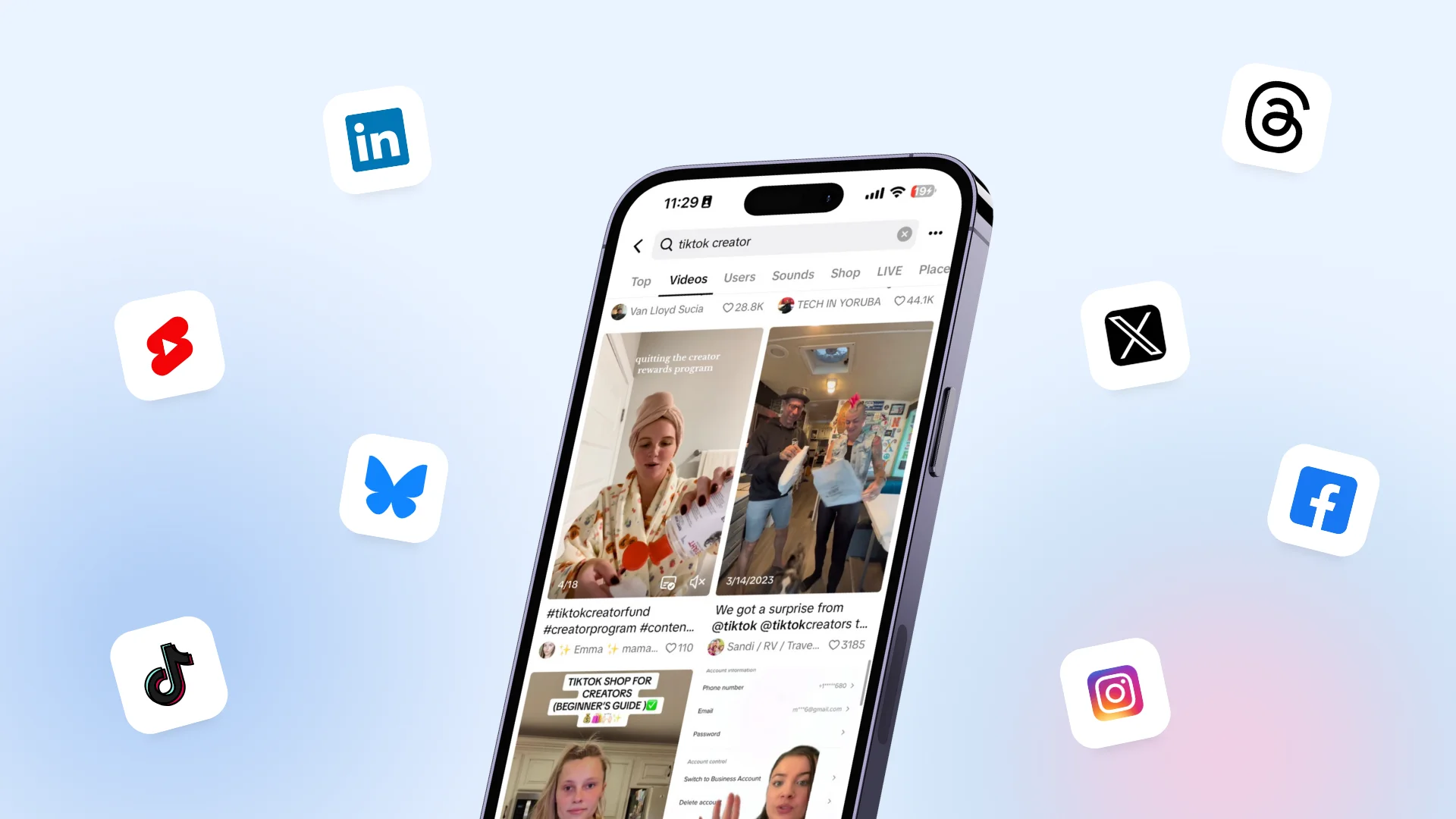
50 Unique Social Media Ideas for Consistent Content Creation
Discover 50 unique social media post ideas to engage your audience, grow your brand, and maintain a consistent content strategy with ease!
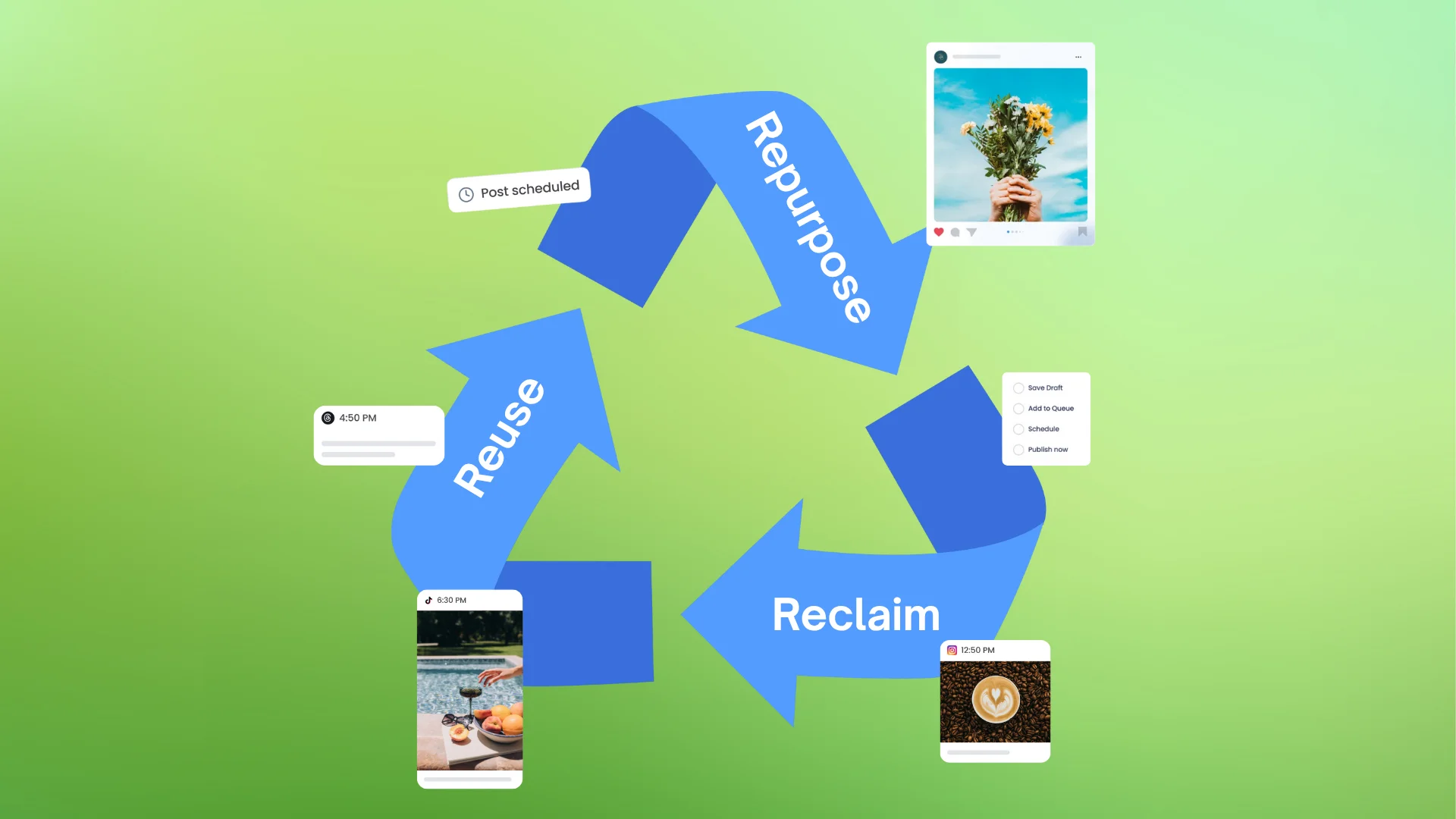
Mastering Content Reuse: The Key to a Consistent and Sustainable Posting Strategy
Summarize with AI
ChatGPT
Claude
Perplexity
Share
Vista Social
X (Twitter)
Table of contents
Summarize with AI
ChatGPT
Claude
Perplexity
Share
Vista Social
X (Twitter)
Welcome back to the Beyond Social podcast. I’m Reggie, and this is the show where we go behind the scenes on how marketers are doing amazing things on social and how we’re trying to build a tool that helps to support them. Today, we’re sitting down to talk a little bit about social listening. It’s been a topic that has come up a lot in our sales team, our inbound marketing, and we’ve seen it in our support channel.
So, I kind of want to dissect it a little bit, probably starting with what is listening and what is probably monitoring, because that comes up a little bit as well as talk about the differences between those. And then I’ve definitely got a couple of questions for you.
Table of contents
What Brands Want to Know About Their Online Presence
Fundamentally, brands want to know broadly speaking, how they’re being perceived across the social space. Out of the box posting to social and responding to comments, that’s really sort of reactive things to do. Like, oh, you got a new feature so you’re going to post, or a comment came in, you’re going to respond. And even if you do have some reporting on comments like positive, negative sentiment, and whatnot, that’s still fairly reactive.
These things are kind of happening already. A lot of brands, if not all of them, have a very legitimate interest to know in a broad context, what is the perception about them across social and web, as well as potentially how they stack up against their competitors.
I mean, what can be more valuable than knowing that say, people mention your brand in maybe not so colorful or not so positive light with respect to say, quality of customer service, something that may not show up in comments. There could be a remote destination on social media where these sorts of things could be in discussion. And also, what could be more valuable than knowing something about the strategy that your competitors are taking? You know, how often are they publishing, what hashtags are they using, what type of content are they disseminating?
Listening vs. Monitoring: Are They Really Different?
So, to answer your question, listening and monitoring are sort of like interchangeable terms. I’m not sure for the sake of this conversation we even want to maybe make a distinction. I feel like they both can be used with equal degree of sort of validity. You want to monitor content that’s coming through your comments and messages, say for the purposes of brand awareness or brand safety or sentiment analysis and whatnot. So let’s call it monitoring. And you want to be out there also monitoring or listening globally, right?
What’s being said about your brand or about your competitor brand could also be an opportunity maybe to analyze and research the market. Would you say there is a demand for this? I’m trying to launch, or this in this specific country that I’m looking to expand into. Other opportunities where listening could be beyond just competitor analysis or brand sentiment?
The Reality of Data Privacy and Limitations
Yeah, so I think there are a lot of sort of wants, there are a lot of asks in the space. Realistically, I would want to know every move my competitor takes. I would want to be notified about every intent to buy my product anywhere in the world at any given time. So these are all great intents, right? So you want that as a brand and getting that is though, is impossible and therefore wanting it is somewhat impractical because social media is a particularly notoriously complex space when it comes to privacy laws and keeping information private.
And some networks have gotten into quite a bit of trouble when that information is not properly secured. Certain countries, particularly Europe, is really going after networks quite harshly for making data about consumer behavior commercially available for sale. So, to answer your question, yes, generally speaking, there is a lot of desire to know a lot about consumer behavior, about what people are saying on social about your brand. Intent data, in reality, a lot of that data is impossible to get and you will have to sort of get creative extrapolating based on some other data gathering techniques.
So for example, if you cannot get the data at all from Facebook, maybe you might be able to track hashtags on Instagram, get enough of a sample of data and derive your necessary conclusions from that. But I wish there was a way to say, hey Facebook, you know, give me, you know, give me all the conversations when people want to buy, you know, shoes and sneakers.
Yeah, so that would be like a really nice system, but there isn’t one, right? Both because of privacy laws, as well as the data is so valuable a lot of networks would much rather use it themselves. Fair. Like if you notice the ads for example, when you run ads they get quite detailed. Oh, the interest groups. Oh my God. I mean, they have all sorts of data on their customers, right? They can target people quite nicely. Right.
But externalizing the data is um, is an unrealistic ask. Okay, fair.
Which Networks Allow Data Access?
So, you mentioned that there are some networks that are very private and obviously the Meta out there and I mean really realistically most of them. There’s some that are a little bit more lenient, let’s say with like X, possibly situation with like Reddit, something along those lines.
Is there a value, I guess, in trying to say, hey, I want to create a more complete picture? Are there tools out there who will step over that line and say, hey, you know what, I know officially this stuff’s not available, but I can get it for you? I think what’s the risk? I think the different networks might have a different perspective of what’s considered to be personal data arguably. Is a social post a personal data?
Networks have begun to differentiate between and create separation between what they consider to be personal profile and a business profile. I suppose no different than you being a solopreneur or you being an LLC. I suppose, right? And and and if that happens, obviously tax code is different for for in both instances.
So networks have been kind of doing the same things, trying to kind of get people to really rethink who they are. And if they want say, to use apps or if they want to integrate with some systems, that would force you to become a business. So, as a result, your data could maybe be a little bit more freely available. Twitter is really good about mining data in a fairly complex way.
The Challenge of Data Volume
It goes without saying though, that there’s really no way to extract all of the data on all of the subjects. Not because it’s impossible to formulate sort of a query or a request. They allow you to create fairly elaborate sort of asks but say you search for the word “Apple.” I bet “Apple” as a word is mentioned a million times a second in tweets. So, imagine even if there was a way to pull in a million tweets per second, that’s 60 million a minute. That’s like a lot per per hour. What are you going to do with all that data?
There is nothing valuable you can extract from that data. So, for example, in Twitter, what they have is they do have the ability to sort of search and you can and that’s sort of part of our search mechanisms as well. When we talk listening about, you know, within Vista Social, but they also have a nice really feature that allows you to see volumes. So you can put in a criteria and you will know is this a trending, is this a relevant topic, right? Is there enough volume? Which is very interesting. Remember how I talked about extrapolating? So you could use this to really understand the amount of volume there is to a certain aspect, or to a certain question, or to a certain intent that the customers might have.
Using Sampling Techniques Across Networks
Can you then safely port that over to another network? Like once you’ve gotten that trend out of Twitter, can you assume that a similar trend will continue to be say existing on Facebook? I mean it’s it’s I think it’s a question to maybe a statistician or somebody who can maybe create a relationship between your presence on both networks. But I would say that absent any other form of putting numbers to these things, I think that’s going to be your closest estimate.
It’s going to give you a very, it’s going to give you a 100% accurate estimate for Twitter and then you’re just going to have to assume that there is a certain margin of error if you were to consider that same trend to exist on other networks. Would it be a tolerable margin of error? I think that’s gonna really be something that you will just sort of assess. It’s sort of no different than say all those pollsters out there that poll for a variety of different topics right across the country.
There are 350 million people in the United States, not everybody’s asked the question, but there is a sampling technique right that allows you to sample in a way where the margin of error is going to be very small. So to your question of the fact that some networks don’t offer any ways of retrieving data, any meaningful ways of retrieving data, which most of them do not. Yeah, you can still utilize the data out of other networks to establish sort of patterns or to understand the trends, right?
Internal vs. External Monitoring Capabilities
Yeah, absolutely. The entire idea here is that it’s not scraping the entire web. It’s trying to create a picture, put together a puzzle of how people are talking, how they perceive your brand, how certain conversations are happening in an industry. And yeah, it’s never going to be 100% perfect, but that’s where you really have to understand your your tolerance level as an organization, right?
And that so yeah and also to kind of also maybe to answer some of the earlier questions that you had on monitoring versus listening, even though I think the terminology kind of gets a little tricky if we do create distinctions. But oftentimes people, also brands, that is kind of their goal, is to understand the behaviors within their own networks, meaning that they want to understand the sentiment of all the comments, they want to identify certain conversations, they they want to quickly maybe categorize them and respond to them faster. All of that is 100% possible because that just operates on the data that we as Vista for example, we already have. Those kind of listeners will always give you 100% accuracy in terms of results.
I guess what we are discussing here is the ability to mine the data from outside of the system. And perhaps one would also say, ask, does it really matter? Is this a sort of like a small business problem or is this a sort of a larger business problem, right? As a small business, do you particularly care for the noise surrounding your brand and the accuracy of that?
Who Actually Needs Social Listening?
Because clearly we get asked by by users to deliver on global listening, on the listening that kind of goes out there. Do you have a sense as to what kind of customers are asking for this? Are they are on a smaller side, that is SMB, I don’t know, less than 20 employees, you know, a couple of social profiles, or do they fall more within a larger, like more established brands?
Yeah, definitely the latter. The larger organizations are the ones. I think two sides to that. I think a lot of the conversations when we have that, we we you know, have a conversation with sales teams on on the trends, a lot of it has to do with the the reality of budgeting. They understand that there’s a cost to us on our end having to go to let’s say X and request a certain volume size, a certain sample size of individual results.
And so, I think over the last, I don’t know, five, 10 years, more and more people have become comfortable with SMM platforms to do analytics, they’ve somewhat understood. Oh, this is probably going to be out of my price range versus a larger organization with a little bit of a bigger budget, the bigger brand risk when a PR situation could arise. They have a little bit more to invest and the risk is greater for them to not to stand by and not try to understand trends before it becomes a bigger situation.
Understanding the True Cost of Social Listening
Yeah, and I guess also to mention right, to the listeners, is that the pricing for listening, because one would ask, like, where why is it so expensive? Yeah, right. The expense of the listening comes from the fact that social networks like Twitter, they are fee-based nowadays, right? In order for a tool to pull in the data, the tool has to pay Twitter for the data and that’s kind of where a lot of tools sort of calculate the pricing for what the listening would be.
I think from what I found, there’s still fairly egregious instances of pricing when it comes to listening. You want to throw any names who you think are doing it in an egregious way? Uh, I mean, I don’t get in trouble here, but Meltwater, Sprinklr, those are usually the ones that, you know, on Google Maps, you go to look at a restaurant. There’s like one money sign through I think maybe five money signs. Let’s let’s put those two on the five money sign side of things, right? Whereas probably Hootsuite, Sprout are in that three money sign sort of situation, right?
Yeah, so I think they’re still marking up the listening quite quite a lot. And I think in reality, they are making it feel as though this is a high-end and a priced feature. I think, when we were building ours and perhaps we are way less greedy than some of these tools, right? I think our pricing is it’s it’s it’s an affordable pricing point for any business out there to to be able to listen in. There is nothing high-end Enterprise. It is kind of how I believe it’s perceived. Oh, you know, the the global listening, it’s only for the big boys. It isn’t.
Making Social Listening Accessible to All Businesses
Yeah, I mean, it’ll probably still cost you um, like a topic search is probably what gonna run you around maybe $300, $400, $500 a month if that, but you know, it will give you a wealth of information on on what you need to do. And um, and and the information, you know, would contain results from Twitter, from Reddit, from Facebook, from YouTube, from from a lot of different places.
Yeah, so not the kind of the Enterprise grade sort of feature that I think has been perceived to be. Yeah. Yeah, definitely not. I think that’s the beauty of a lot of the things that we’ve tried to build too is a level of accessibility. There’s there’s the benefit to everybody, right? And I don’t know, we could get 500,000 small businesses out there, whatever the number is. The podcast I listened to last week. There’s a lot there’s a lot of small businesses actually, in the millions probably.
Kind of seems weird to say, hey, you guys don’t need it or let me price you out of something like this, you know, versus the benefit they could bring. Yeah, the agencies that are servicing these uh businesses also, you know, could benefit from from from understanding the competitor landscape. And yeah, so having such a tool affordable, we just, I just wanted to kind of talk about the nature and the origins of the pricing and it is mostly to do with the um, the costs of some of these APIs that became fee based.
Luckily for everyone, most of these APIs are not you’re charging for the actual scheduling or uh responding to messages. Uh if that ever becomes a reality, the price for the entire SMM offering is going to just go through the roof. So, uh I don’t think it’s going to happen because they view all these tools, by day I mean all the social networks. They kind of view the tools as a necessary uh enablers of a lot of social media activity. Yeah. Uh but at the same time, I think they do understand that if we, the tools are able to then sell their data, they might as well have a cut at it, right?
So, uh but yeah, it’s it’s a great topic and I think it’s such a simple feature to use also that if if there is a brand out there that’s not yet, you know, have tried global listening. I think uh with Vista you can certainly explore it in a very affordable way um, and make decisions that are just as informed as uh the decisions of the bigger brand. As we often talk in our podcast of how democratized the world of marketing has become, where a small brand can easily compete with a large brand and you don’t need the millions of dollars on TV ads, the way you maybe needed it, you know, 20 years ago. Uh today, you’ll need you know yourself, your creativity, uh maybe a few hundred for the tool to kind of, you know, streamline and optimize your processes and and that’s that. So, no millions of dollars, nothing like that.
That’s awesome. Alright, sweet. Thanks for taking the time to tell. I know that my curiosity usually gets the best of me in these topics. Yeah. Appreciate you.
Thank you guys for listening. Thank you for for tuning in whether it’s on YouTube or Apple Podcast, Spotify, wherever you’re consuming this content. Make sure to share it, to like it and if you have a topic idea, you’d like us to see to see covered, maybe even want to join us here in the studio to get interviewed or to feature your agency, your brand, definitely reach out to us vistasocial.com/podcast and we’ll see you next week.
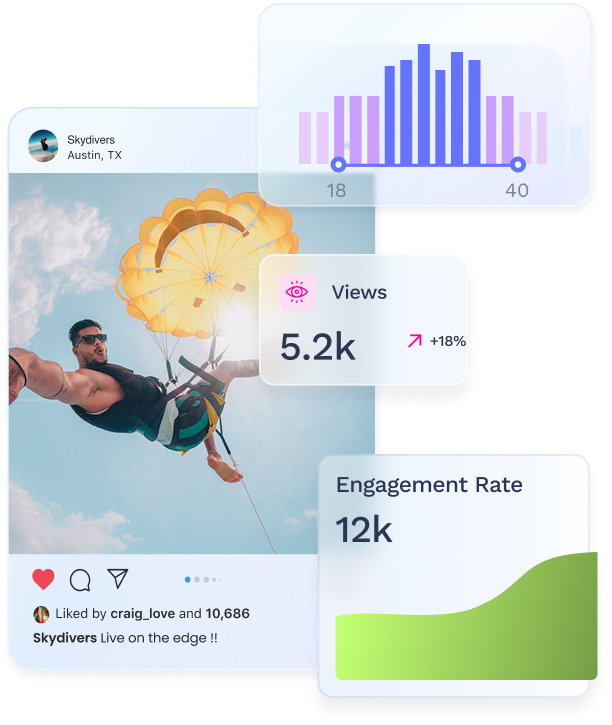
Try Vista Social for free
A social media management platform that actually helps you grow with easy-to-use content planning, scheduling, engagement and analytics tools.
Get Started NowAbout the Author
Content Writer
Russell Tan is a content marketing specialist with over 7 years of experience creating content across gaming, healthcare, outdoor hospitality, and travel—because sticking to just one industry would’ve been boring. Outside of her current role as marketing specialist for Vista Social, Russell is busy plotting epic action-fantasy worlds, chasing adrenaline rushes (skydiving is next, maybe?), or racking up way too many hours in her favorite games.
Read with AI
Save time reading this article using your favorite AI tool
Summarize with AI
Never Miss a Trend
Our newsletter is packed with the hottest posts and latest news in social media.
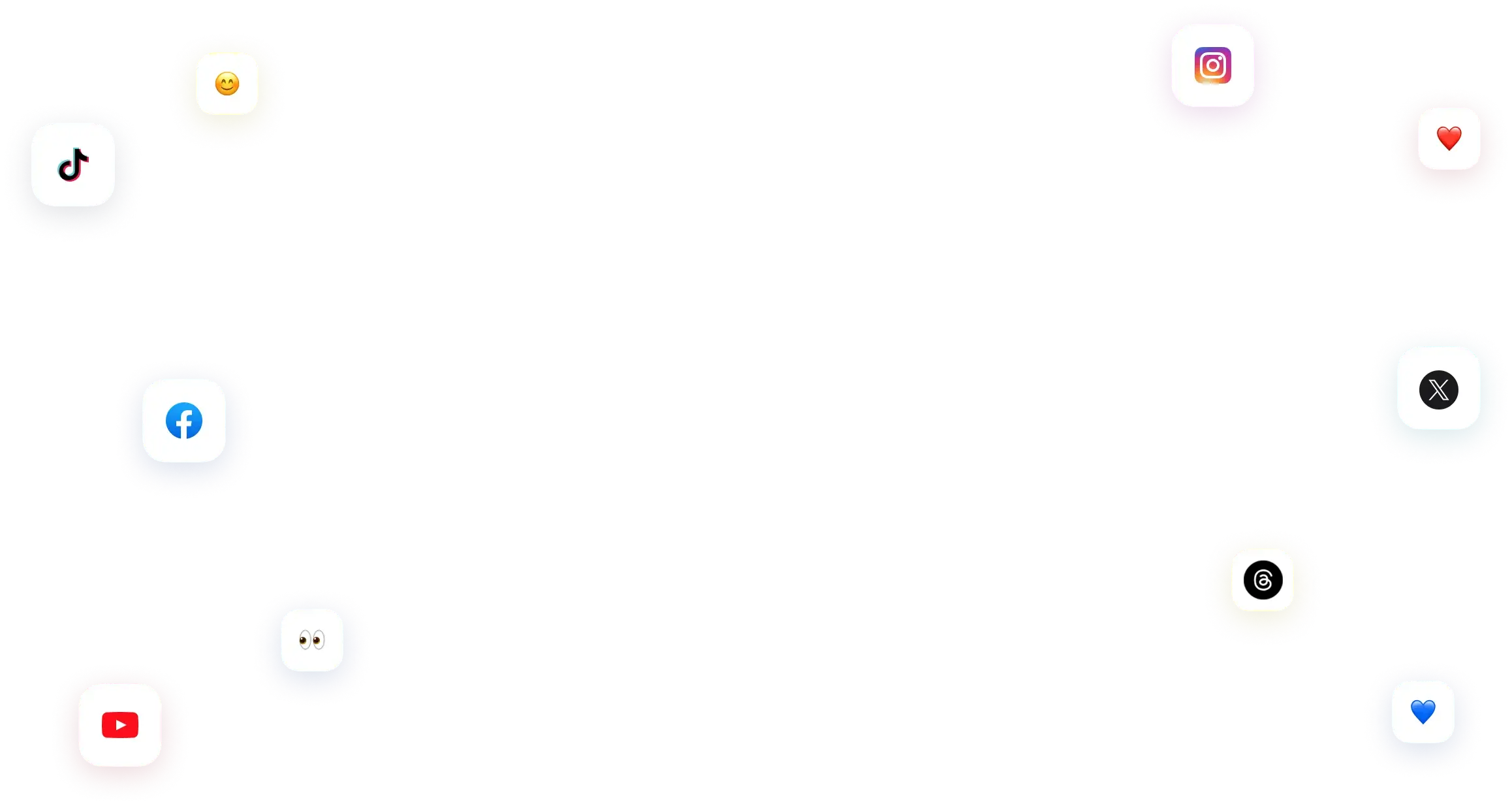
You have many things to do.
Let us help you with social media.
Use our free plan to build momentum for your social media presence.
Or skip ahead and try our paid plan to scale your social media efforts.
P.S. It will be a piece of cake 🍰 with Vista Social
Subscribe to our Newsletter!
To stay updated on the latest and greatest Social Media news. We promise not to spam you!
Enjoyed the Blog?
Hear More on Our Podcast!
Dive deeper into the conversation with industry insights & real stories.
